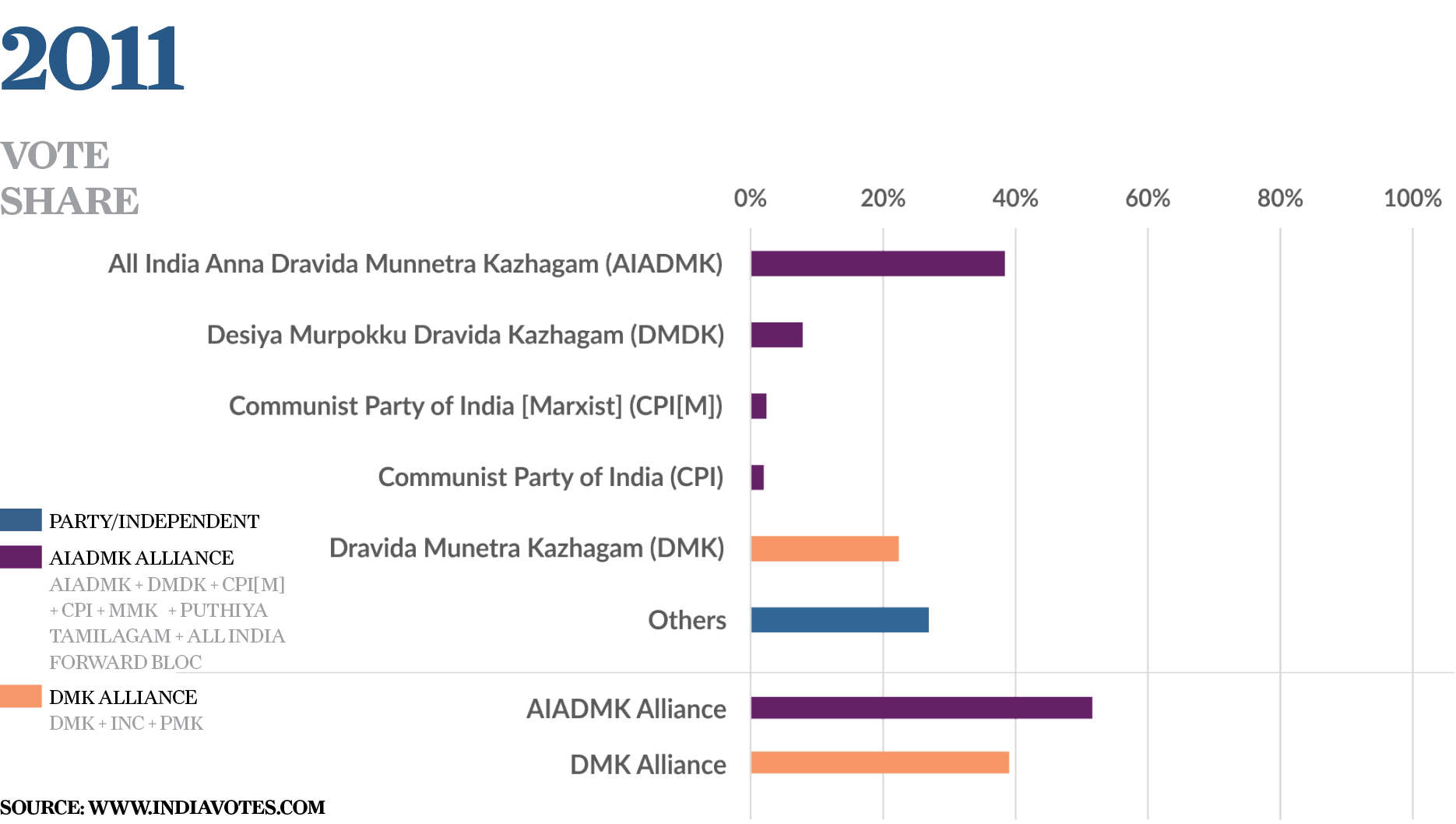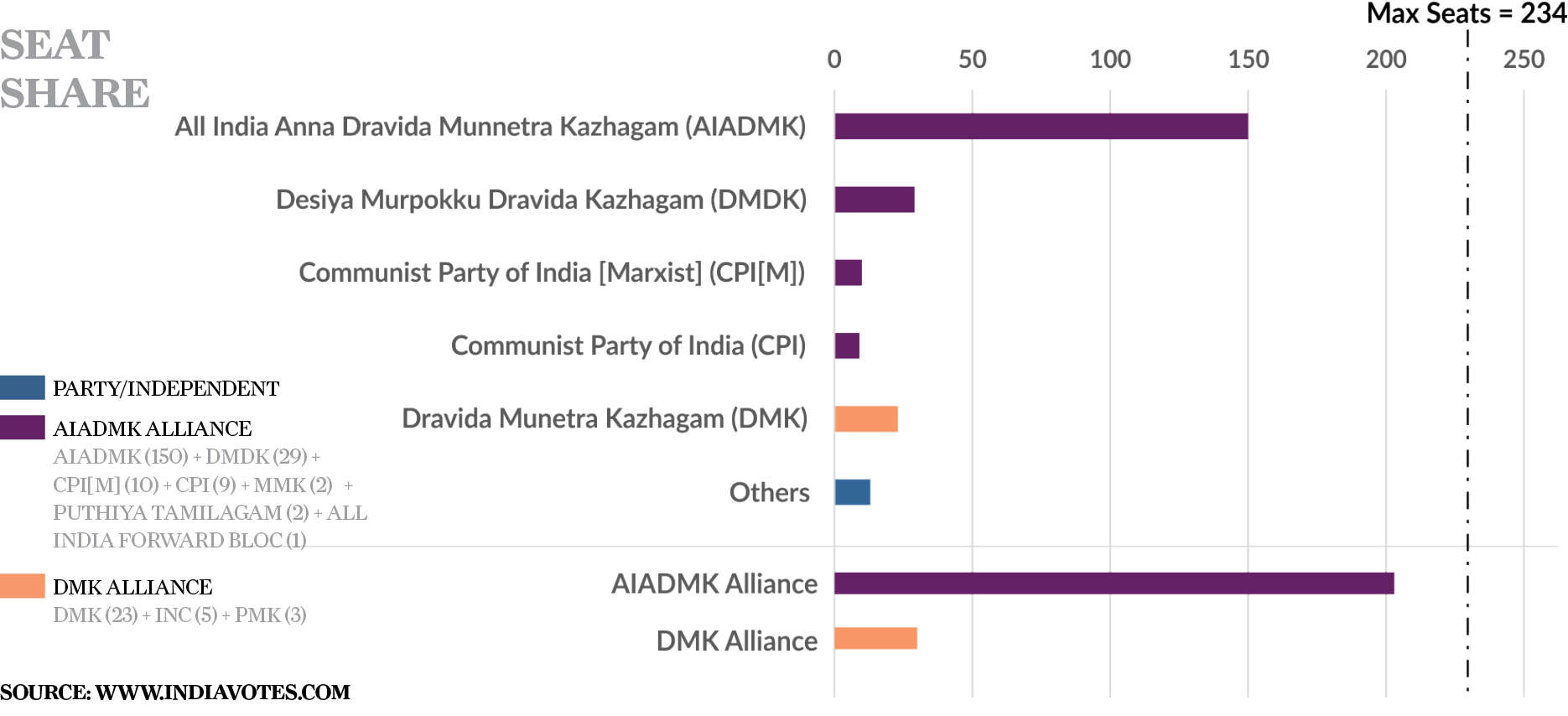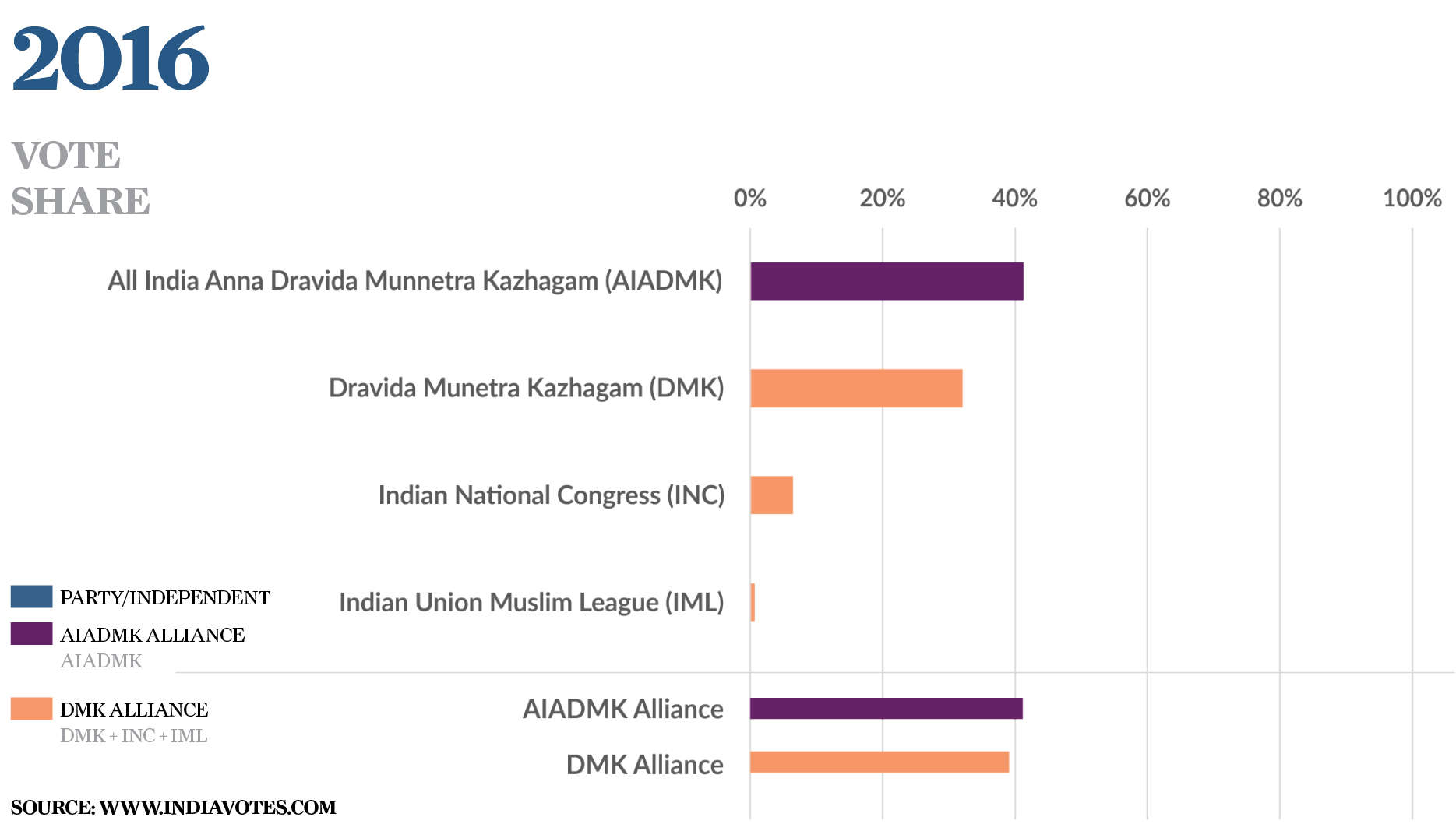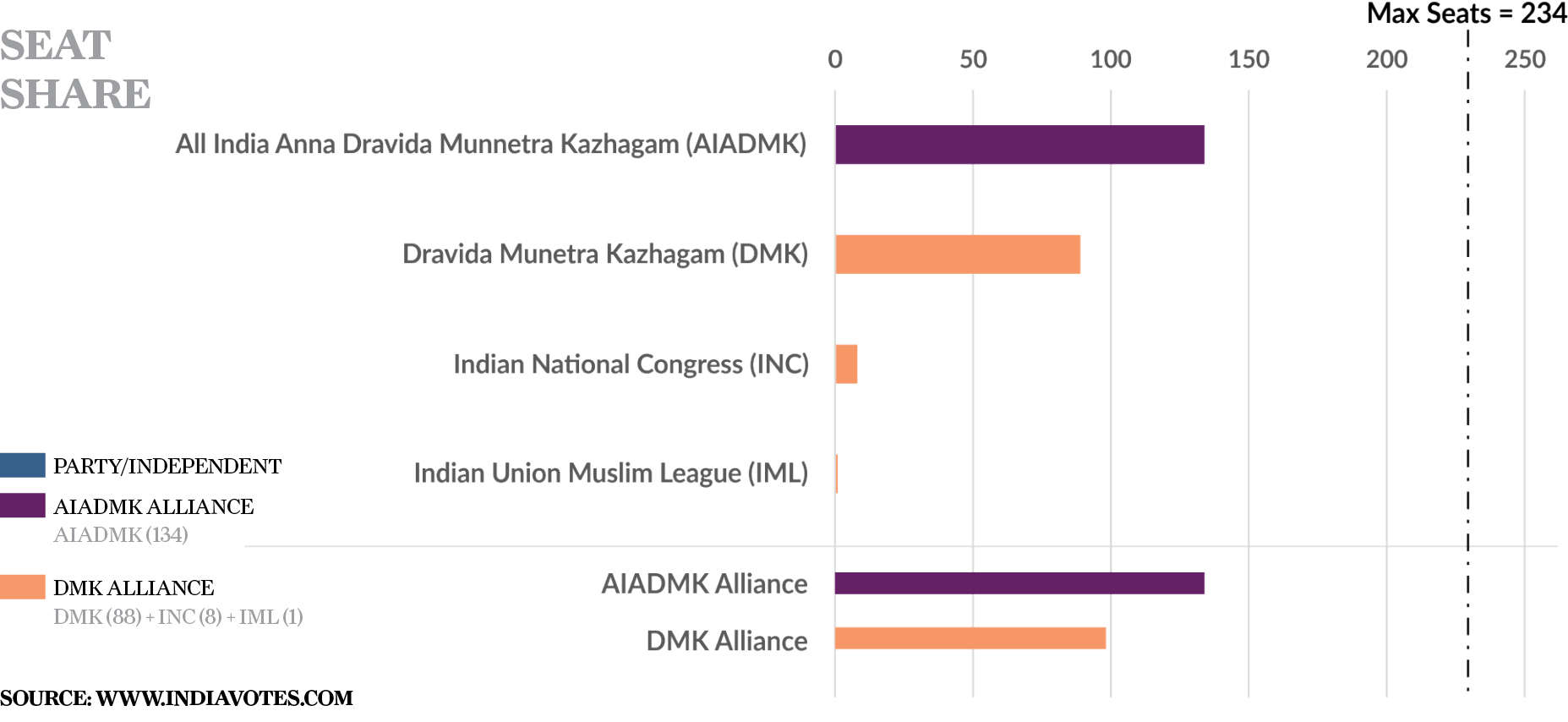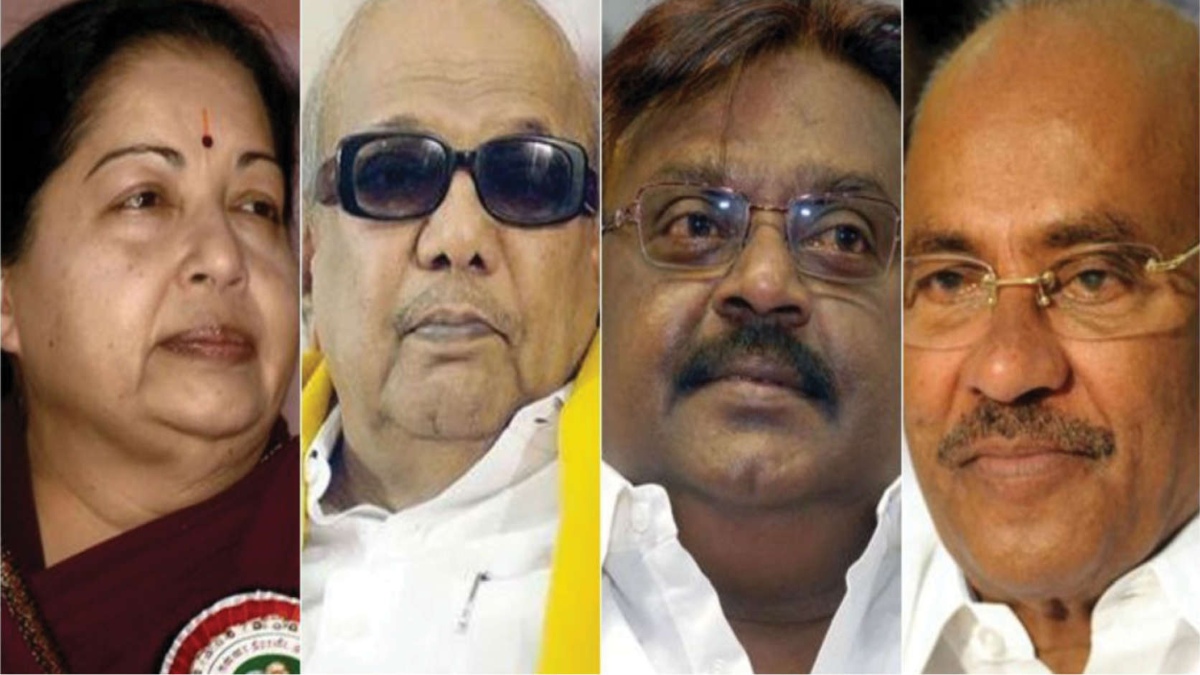In the past week, dominant regional and national parties have embarked on the campaign trail in Tamil Nadu. The Assembly polls in Tamil Nadu are set to be held in April or May this year, and the Election Commission has released the final electoral rolls for the state already. As per the final electoral rolls released by the Election Commission, there are 6.26 crore voters in the state and there are 10 lakh more women voters than men. In the past, politics in the state has always been dominated by regional parties such as the AIADMK and the DMK.
The political battle in Tamil Nadu is a two-faced contest between the AIADMK led National Democratic Alliance (NDA) and the DMK led United Progressive Alliance (UPA). Incumbent Chief Minister, Edappadi K. Palaniswami of the AIADMK is leading the NDA alliance along with its alliance partners, the BJP, Pattali Makkal Katchi (PMK) and other partners. While on the other hand, DMK supremo M.K. Stalin is leading the UPA along with alliance partners the INC, Indian Union Muslim League (IUML) and others. While voters in Tamil Nadu were eagerly waiting for the emergence of a third front, due to the impending announcement of actor Rajinikanth’s political party, the actor officially announced his decision to not launch a political party last month.
CURRENT POLITICAL CLIMATE IN TAMIL NADU
As Rajinikanth backs out from forming a party, the political contest in Tamil Nadu has continued to remain a two-faced contest between the AIADMK and the DMK. However, unlike before, the 2021 Assembly Elections would be the first one in decades without J. Jayalalithaa and M. Karunanidhi. Due to the same, more emphasis is being given to the leadership capabilities of current Chief Minister and AIADMK top brass Edappadi Palanisamy and DMK Supremo M.K. Stalin.
A number of other parties such as Kamal Hassan’s Makkal Needhi Maiam (MNM), Seeman’s Naam Tamilar Katchi (NTK) may not make an electorally significant difference. At this juncture, the performance of National parties should be viewed more closely given the momentum gained by the BJP and deterioration of the INC in Tamil Nadu. Tamil Nadu has always been a state where National parties piggyback on the stature of regional parties. This time though, the BJP seems to have a slight upper hand in controlling their alliance with the AIADMK whilst the INC is still completely dependent on the DMK.
The AIADMK which was marred by the issue of ‘twin leadership’ seems to have ironed it for now. The incumbent Chief Minister Edappadi K. Palaniswami and Deputy Chief Minister O.Panneerselvam have been at loggerheads about absolute control over the party. The party, however, has officially decided to project Edappadi K. Palaniswami as their Chief Ministerial candidate and there has been a temporary detente between them. Edappadi Palaniswami has come a long way as a leader since his inception as the Chief Minister. He has formed a niche of his own. A farmer himself, Palaniswami has been applauded for his actions such as pushing the Kudimaramath initiative aimed at restoring and rejuvenating water bodies and naming 8 Cauvery Delta districts as Protected Farm Zones amongst others.
The DMK on the other hand has one undisputed leader in M.K.Stalin whose oratory and leadership skills have more often than not been targeted by opposition and people alike. His decision to appoint his son Udhayanidhi Stalin as the head of DMK’s Youth Wing was seen as a dynastic move and irked the party’s own cadre. On the other hand, DMK is currently riding on a 10-year anti-incumbency wave that has been culminated by the AIADMK in the state. Peoples’ positive perception of the BJP in Tamil Nadu is also another optimistic sign for the AIADMK-BJP alliance. These two factors have primarily strengthened DMK’s chances for the upcoming 2021 Assembly Elections. As per an opinion poll released by the ABP Network and Team C-Voter, the DMK led UPA alliance is leading in the state with a 41.1% vote share (158-166 seats) and the AIADMK led NDA alliance is likely to secure 28.7% vote share (60-68 seats).
